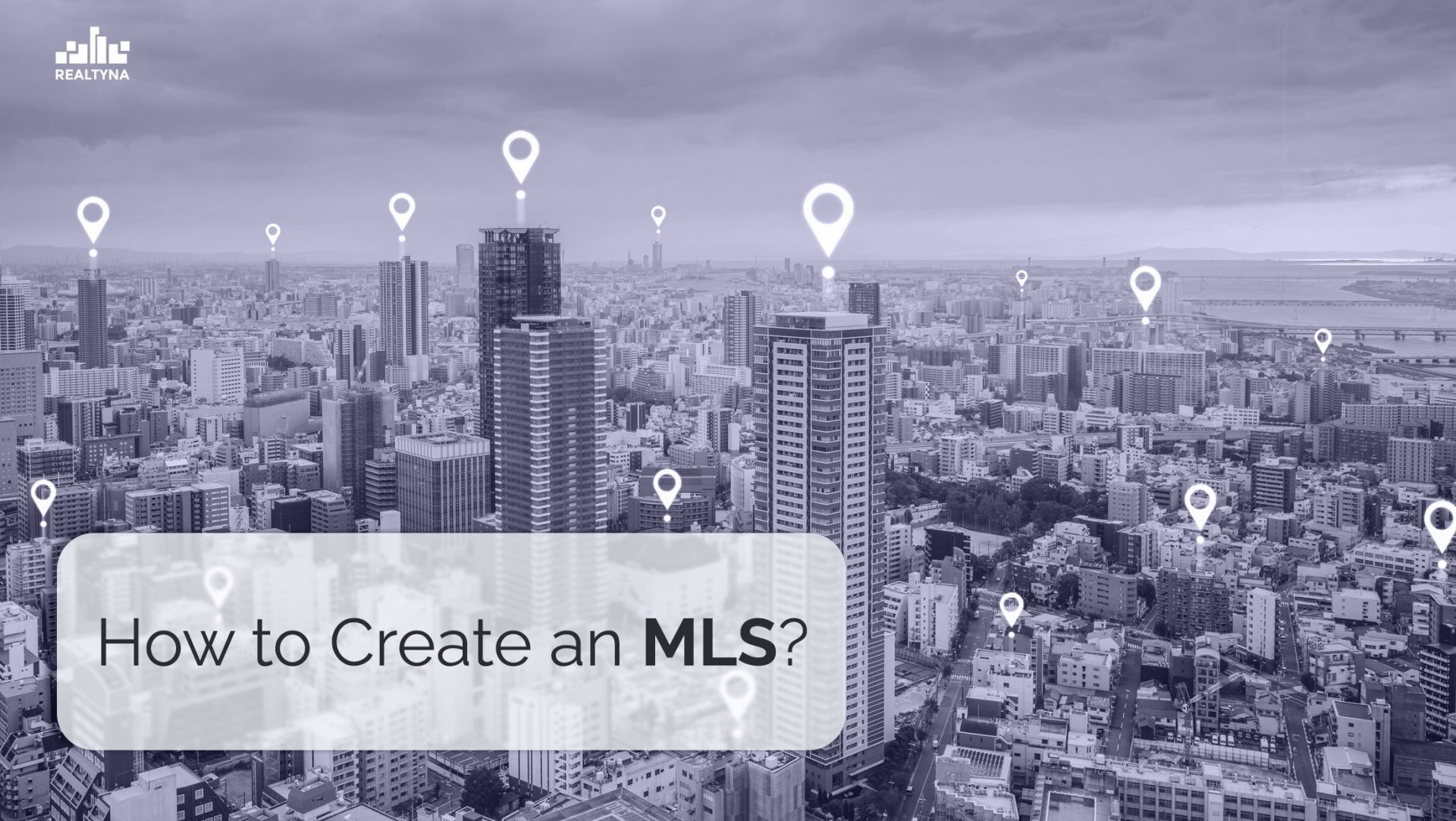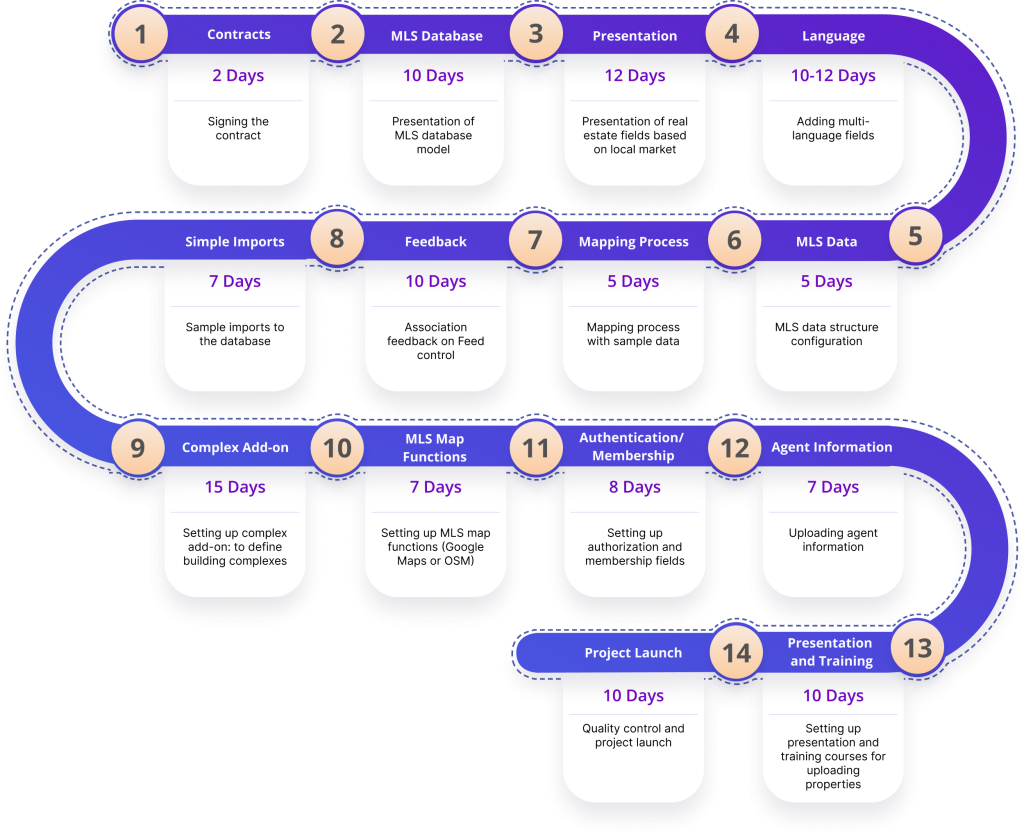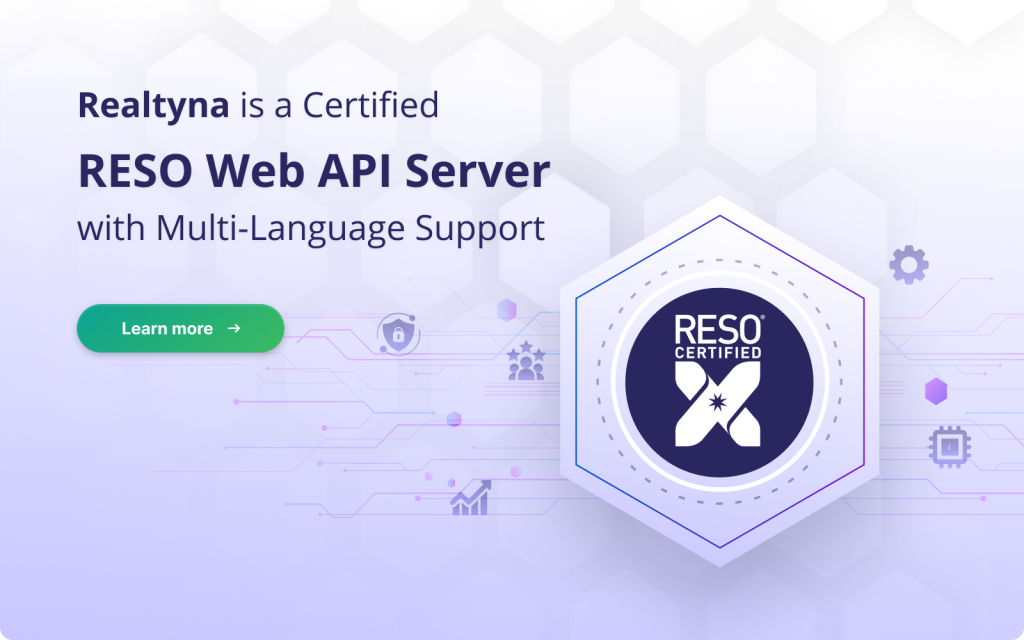
How to Create an MLS ?
MLS (Multiple Listing Service) commonly used in the US and Canada, is the most coveted real estate ecosystem service in the world. Even prior to the Internet and digitization, it has served real estate practitioners and consumers in the most dynamic real estate markets in the world, the US and Canada, for close to 100 years.
MLSs are the most reliable source of listings data and have made the lives of consumers, agents, and their clients easier. Its use has resulted in more sales to more people, and the result of that being more commissions paid to practitioners.
Before we dive into the hows of establishing an MLS, let’s have a quick look at what an MLS is and why it matters to real estate agents across the US and Canada.
What Is An MLS?
An MLS is a unique database of property listings owned and maintained by real estate professionals through their professional organizations, such as their local association of REALTORS. According to NAR, this private database is designed to help clients buy and sell their properties with ease. This database is funded by real estate professionals in a certain geographic locale, often owned by a board or an association of Realtors, which maintains the database and manages the operation.
The listings are publicly available under various data license agreements (IDX/VOW/Syndication) to portals such as Zillow and REALTOR.com. Private information such as the personal contact information of the seller is not made public.
MLS (Short for Multiple Listing Service) is the name of the enterprise that provides access to the listing data/information of all MLS Members, Known as Subscribers and Participants
IDX is not the technology, it is the data licensing rules.
According to the Handbook of MLS for Realtors by the National Association of Realtors, there are different types of MLSs:
– Committee Of an Association
– Wholly Owned subsidiary
– Regional MLS owned by more than one association
– Broker Owned MLS
What Are the Benefits of an MLS for Realtors?
Real estate agents and brokers who are members of an MLS can benefit from the following:
-
- An economical and efficient way of sharing their property information,
- Accurate and updated access to their clients,
- Streamlined cooperation with other agents and brokers, (Compensation and Cooperation)
- Data credibility and client trust,(enforced rules, policing)
- Maximized visibility, both for the property and the listing agent,
- Fair competition between small and large brokerages,
- And so much more.
| Features | With MLS | Without MLS |
| Exposure | High Properties are widely marketed to a big database of agents and clients | Low Limited exposures as a result of decentralized platforms and portals |
| Search | Convenient search experience with access to a reliable database and filters | Hard to search due to decentralized systems and databases |
| Accurate Information | MLS systems provide standard and verified listings data with accurate property details, sales history, and disclosures | The information about properties is inconsistent, unreliable and prone to fraud and misinformation |
| Market Analysis | Access to historical data and market analysis | Limited ability to analyze market trends |
| Cooperation & Compensation between agents | Enhanced cooperation between agents for faster and smoother transactions | Lack of information sharing between agents which leads to delays and inefficiencies |
| Transparency | Buyers and sellers have fair access to information about market trends, comps, and history | Lack of access to property information and history for everyone. Difficult to make informed decisions. |
| Professional Standards | MLSs have high standards in place for business and ethical practices | Lack of standardized business models and prone to unethical behavior and discrimination |
| Technology | Enhanced and up-to-date tech available to members as part of their membership | The technology available to certain brokerages or companies |
How to Create an MLS?
As mentioned earlier, MLSs are collaborations between Realtors within a geographic area. This collaboration often extends to more than one MLS and area, an example of which you can see in MyStateMLS, RE Distribute, or CRMLS.
To learn more about the basic rules of establishing an MLS, check out the following guide by the National Association of Realtors:
https://www.nar.realtor/mls-online-listings
Check out our MLS Coverage page for a full list of MLSs:
MLS Coverage Archive – Realtyna – Real Estate Web
What Are the Technical Requirements to Build an MLS?
To set up a basic MLS portal, you need the ability to let the members sign up to add or manage listings. Also, you need to be able to generate a dynamic feed so your members can obtain and integrate it on their own websites.
Realtyna offers the following products and services that can help you create your database and control access to your listings data:
- WPL Pro: The core platform with a high level of customizability and features. This platform is also used as the basis for additional products and developments.
-
- Membership Add-on: This add-on allows you to control and monetize membership levels.
- Flex Addon: This is a unique feature of Realtyna’s solution in which Associations (and MLS board) are given the opportunity to customize what the data structure of the property pages will look like. In other words, you have the ability to set what property features/ details to be included in the MLS, based on the needs of your region or country.
- Exporter Add-on: This feature allows you to export data from your MLS server similar to an API feed.
- Custom Data Feed Generator: This feature allows you to generate custom feeds for your MLS members. This feed is fully customizable, so you can define what data can or cannot be shared with the members.
- Mobile App: Custom brand mobile apps for Android and iOS users.
- CRM: Realtyna’s native customer relationship management, with a myriad of features ranging from lead generation to event management, etc.
- Multi-Language Support: Realtyns is the first company in the world that is certified by RESO to provide multi-language support for MLSs.
Create an MLS for Your Country
Realtyna is a certified RESO Web API server and can help you build an MLS ecosystem in your country. Here is a quick list of steps you need to take to build an MLS with the help of Realtyna:
- Conduct meetings with Realtyna’s MLS team
- Realtyna provides all the tech tools needed to establish the system
- Become certified for RESO Web API
- Customize your ecosystem based on your market needs
- Launch and grow your membership
You can see the process in a quick view here:

You can see examples of international MLSs built on Realtyna’s solution here:
Contact our team today for a free consultation.
Why RESO Web API Is the Best Solution?
RESO Web API is the latest technology offered by the Real Estate Standard Organization. It brings lots of new opportunities for Realtors and their software developers. The following is a list of benefits of how RESO Web API improves MLS functionality and services:
- Better control on what you or members can display
- Faster Set Up and Integration
- Improved development and third-party integration
- Increased Security
- Hosting of the data, using Realtyna’s software
- Receive all the SEO value from owning data on your servers using Realtyna’s software.
| RESO Web API Standards | No Standard |
| Interoperability:RESO Web API standards provide a common framework and data format for real estate applications, enabling seamless integration and communication between different systems and platforms. | Interoperability:Without a standard, real estate applications may use different data formats and protocols, leading to compatibility issues and limited integration capabilities. |
| Data Consistency:RESO standards define consistent data fields, structures, and validation rules, ensuring that information exchanged between systems is accurate and reliable. | Data Inconsistency:In the absence of a standard, data fields, structures, and validation rules can vary, resulting in inconsistent and unreliable information across different applications and platforms. |
| Efficiency:RESO Web API standards streamline data exchange processes by providing predefined endpoints, query parameters, and authentication mechanisms, reducing development time and effort. | Development Complexity:Without a standard, developers need to invest additional time and effort in designing custom data exchange mechanisms, leading to increased complexity and potential development errors. |
| Scalability:RESO standards are designed to handle large-scale data operations efficiently, ensuring optimal performance even with a high volume of real estate transactions and listings. | Limited Scalability:Without a standard, scaling real estate systems can become challenging due to the lack of optimized data handling mechanisms, potentially leading to performance issues and bottlenecks. |
| Industry-wide Adoption:RESO standards are widely recognized and adopted within the real estate industry, fostering collaboration and cooperation among stakeholders and encouraging innovation and market growth. | Fragmented Industry:In the absence of a standard, the real estate industry can become fragmented, with different players using proprietary formats and systems, hindering collaboration and hindering the potential for industry-wide innovation. |
| Data Security:RESO Web API standards include provisions for data security and privacy, ensuring that sensitive real estate information is protected during exchange and storage. | Increased Security Risks:Without a standard, data security measures may vary across applications, increasing the risk of breaches, unauthorized access, and potential privacy concerns. |
Data-Scraping and Copyright!
MLS data is vital to the success of real estate agents and brokers who are members of or affiliated with an MLS. As a result, NAR has some recommendations on how MLSs can protect their listings data under US copyright laws. Based on these rules, it is the “Compilation of Data” which is copyrightable in the US.
Because MLS listings are highly coveted business data, many scammers and scrappers try to obtain the data one way or another. One of the most common methods of scraping data is the use of bots, which scrap data off your site and share and use it without the permission of the content owner.
How Can MLSs be Protected Against Unsolicited Distribution of Their Data?
From placing strict regulations on access and vendorship to legal challenges, MLSs, and real estate associations have taken a wide range of measures to protect their members’ listing data.
Here are a few ways MLSs can protect their data:
- Switch to modern-day technology such as RESO Web API
- Use effective firewalls and other preventive measures
- Optimize their data distribution procedures to ensure data vendors remain compliant
- Use Realtyna’s Unique Data Protection for MLSs
How to Get Started
Realtyna is one of the leading providers of online solutions for the real estate industry. As an authorized vendor of RESO API and +200 MLSs, Realtyna’s solutions feed hundreds of websites and portals across North America.
Contact our product experts today for a free consultation on building your new real estate project with Realtyna, joining a large group of individuals and companies already using our products and services:



Sorry, the comment form is closed at this time.